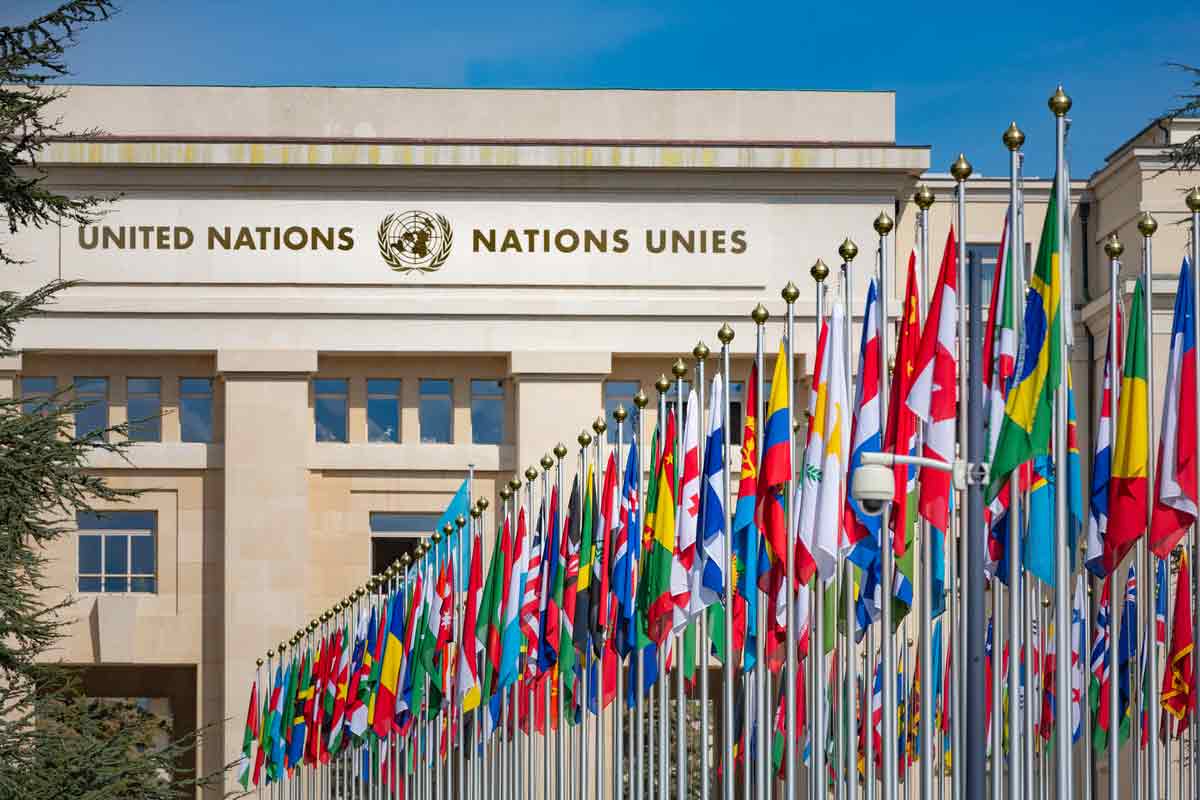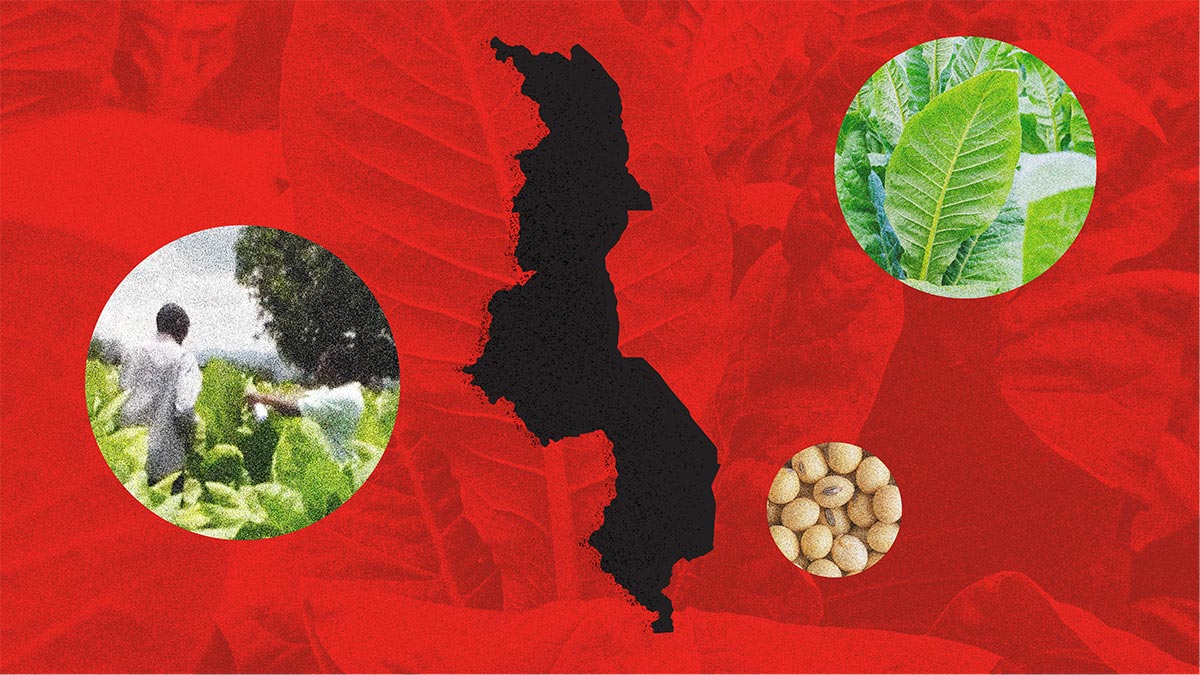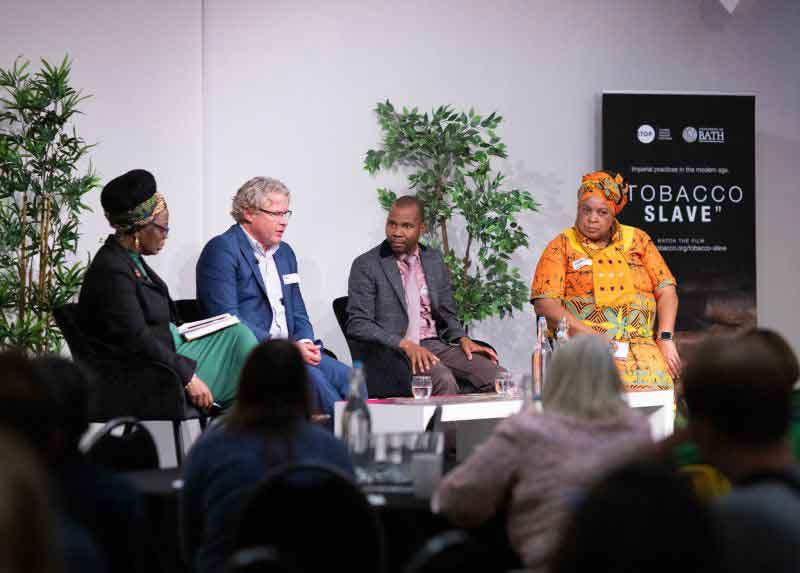- Resources
- News
-
-
Get Email Updates
Sign up for STOP's emails and never miss an update on our latest work and the tobacco industry's activity.
-
Get Funding
Ready to tackle industry interference? You could be eligible for a grant.
-
Share a Tip
Do you have information on tobacco industry misconduct in your country? Let us know.
-
Get Email Updates

April 30, 2021
Ms. SANDA OJIAMBO
CEO & Executive Director
UNITED NATIONS GLOBAL COMPACT
New York, NY 10017
Dear Ms. Ojiambo,
We, the undersigned civil society representatives, request that the Eliminating Child Labour in Tobacco-Growing Foundation (ECLT) be removed as a participant to the United Nations Global Compact (UNGC), in accordance with UN policies, including UNGC’s 2017 policy update,[i] the Model Policy for Agencies of the United Nations System on Preventing Tobacco Industry Interference (Model Policy),[ii] and the UN Sustainable Development Goals (UN SDGs), which embody the World Health Organization Framework Convention on Tobacco Control (WHO FCTC).[iii] ECLT has undeniable ties with the tobacco industry and has failed in its stated objective of ending child labor in tobacco—a problem directly linked to the exploitative business practices of its funders and members.
- ECLT is a corporate alliance of tobacco producers and manufacturers. British American Tobacco (BAT), Philip Morris International (PMI), Imperial Tobacco (Imperial) and Japan Tobacco International (JTI) are members, along with leaf suppliers and the International Tobacco Growers Association (ITGA),[iv] and are represented on its governing board.[v] Notably, ITGA itself is also funded and directed by tobacco companies.[vi] Evidence recently provided to UNGC by OxySuisse further confirms that ECLT was established to advance tobacco industry interests.
- ECLT is promoted by tobacco companies in their public relations activities as evidence of their corporate social responsibility (CSR), aiming to “gain political support and weaken opposition.”[vii] PMI,[viii] BAT[ix], [x], JTI,[xi] and Imperial[xii], [xiii], [xiv], [xv] cite ECLT as evidence of compliance with standards in human rights or sustainability in their environmental, social and corporate governance (ESG) reporting; BAT highlighted ECLT’s provision of loans and engagement of policymakers in its 2020 ESG report, even while an ongoing legal suit filed against the company alleges that it continues to profit from child labor.[xvi]
- Other UN agencies have declined or ended partnerships with ECLT. For example, following an open letter from over 100 civil society organizations,[xvii] the International Labour Organization (ILO) terminated its funding partnership with ECLT in 2018 to avoid hindering State Parties’ achievement of the WHO FCTC and to ensure coherence with policies of the UN System, particularly the Model Policy adopted by the UN Economic and Social Council (and State Parties).[xviii], [xix]
- ECLT is an integral part of tobacco companies’ so-called CSR, which itself is problematic:
- CSR is banned in many countries. Article 13 of the WHO FCTC mandates that governments adopt a comprehensive ban on tobacco advertising, promotion and sponsorship (TAPS) including activities described as socially responsible. Article 5.3 of the WHO FCTC requires governments to protect their public health policies from tobacco industry interests, including rejecting and denormalizing the industry’s so-called CSR activities that are used as a means to access policymakers[xx] for the purpose of weakening tobacco control legislation and subverting WHO FCTC implementation. Over 180 Parties are bound by the WHO FCTC and 63 countries have a comprehensive ban on TAPS.
- It diverts attention from tobacco companies’ violations of human and workers’ rights. According to a union of tobacco workers in its letter to the ILO,[xxi] ECLT serves to detract from important issues behind child labor: poverty perpetuated by the very tobacco companies that fund ECLT, unfair contracting schemes and denial of rights to organize and enter into collective bargaining agreements, among others.
- It detracts from tobacco companies’ liability for profiting from child labor. The tobacco companies behind ECLT, the ultimate buyers of tobacco leaves, are primarily responsible for child labor and should be held liable for the consequences. A lawsuit has been filed against the main founder of ECLT, BAT,[xxii] seeking compensation for “widespread use of unlawful child labour… and the systematic exposure… to extremely hazardous working conditions with minimal protection against industrial accidents, injuries and diseases.” [xxiii] Studies show that in Malawi alone, the tobacco industry enjoyed substantial economic benefit from unpaid child labor, of up to 20 times the total budget of ECLT.[xxiv]
- It is a smokescreen for tobacco companies’ strategies to evade responsibility. In appearing to address child labor, tobacco companies distract from their creation of legal structures to shift the burden to third parties—distancing themselves from the problem to evade culpability.[xxv], [xxvi] Instead of paying a nominal amount for ECLT to implement inadequate and ineffective programs, the companies should pay fair prices[xxvii] that could ultimately pull farmers out of poverty and consequently prevent practices of child labor.
Stop ECLT and the tobacco industry from exploiting UNGC and the International Year for the Elimination of Child Labour.
ECLT is an alliance of tobacco companies that is governed and used by those companies to give the appearance of complying with the Guiding Principles on Human Rights and the UN Principles of Responsible Investment (ESG), and of fulfilling commitments toward the UN declaration of 2021 as the International Year for the Elimination of Child Labour. In reality, the tobacco industry’s interests are irreconcilable with the interests of human rights and sustainable development[xxviii] and are antithetical to UNGC’s mission.[xxix]
The tobacco industry undermines UN policies against tobacco, including using the UN likeness and name to create a misleading impression of contributing to sustainable development[xxx] while working to escape liability for harms caused to humanity, including child labor, and to the planet. Allowing ECLT to be a part of UNGC legitimizes the tobacco industry’s tactics, which hinder achievement of the WHO FCTC and UN SDGs.[xxxi]
We urge UNGC to act according to its mandate, practice good governance and align its policies with those of UN agencies, international bodies and member states that accord with WHO FCTC Article 5.3 and work to protect policy, health and development objectives by rejecting partnerships and interactions with the tobacco industry and its allies.[xxxii] End ECLT’s participation in UNGC.
Should you have any questions or wish to discuss this issue further, please contact us.
Nuntavarn Vichit-Vadakan, Gan Quan, Anna Gilmore and Sandra Mullin
On behalf of STOP, a global tobacco industry watchdog, and 176 organizations and individuals.
[i] United Nations Global Compact. Updated 13 October 2017. UN Global Compact integrity policy update. Available from: https://d306pr3pise04h.cloudfront.net/docs/about_the_gc%2FIntegrity_measures%2Fintegrity-recommendation-2017.pdf (accessed 13 April 2021). See also: United Nations Global Compact. 19 July 2017. UNGC Board Meeting Report. Available from: https://d306pr3pise04h.cloudfront.net/docs/about_the_gc%2FUNGC-Board-Meeting_Report_07-19-17.pdf (accessed 13 April 2021); United Nations Global Compact. 2021. Who should join? Available from: https://www.unglobalcompact.org/participation/join/who-should-join (accessed 13 April 2021). – UNGC’s 2017 policy update precludes tobacco producers or those deriving revenue from the same from being a participant of UNGC). The Policy Update states that “participating companies whose business involves manufacturing or producing tobacco products will be delisted effective 15 October 2017” and indicates that the UN Global Compact will accordingly “review engagement with existing participants.” The UNGC participation guide also provides that those that “derive revenue from the production and/or manufacturing of tobacco” “cannot be recognized as participants of the UN Global Compact” while the UNGC website itself explains that “[t]his decision recognizes that tobacco products are in direct conflict with UN goals, particularly with the right to public health, and undermines the achievement of SDG 3.”
[ii] Model policy for agencies of the United Nations system on preventing tobacco industry interference. n.d. Available from: https://fctc.who.int/publications/m/item/model-policy-for-un-agencies-on-preventing-tobacco-industry-interference (accessed 29 July 2022).
[iii] See: Target 3.a. In: United Nations. Goal 3. Ensure healthy lives and promote well-being for all at all ages. Targets and indicators. Available from: https://sdgs.un.org/goals/goal3 (accessed 13 April 2021).
[iv] ECLT Foundation Board Members Pledge of Commitment. 2014. Available from: https://www.eclt.org/en/downloads/ECLT-Members-Pledge.pdf (accessed 13 April 2021). See also, for example: British American Tobacco. Human rights and child labour in tobacco growing. Available from: https://www.bat.com/group/sites/UK__9D9KCY.nsf/vwPagesWebLive/DOAK8P8D (accessed 13 April 2021).
[v] ECLT Foundation Board Members Pledge of Commitment. 2014. Available from: https://www.eclt.org/en/downloads/ECLT-Members-Pledge.pdf (accessed 13 April 2021). See also: ECLT Foundation. 2019 ECLT annual report. Available from: https://www.eclt.org/user/pages/10.annual-report/ECLT_AR_2019.pdf (accessed 13 April 2021).
[vi] Framework Convention Alliance. 2014. International Tobacco Growers’ Association (ITGA): Frequently asked questions. Available from: https://fctc.wpengine.com/wp-content/uploads/2014/06/ITGA_FAQ.pdf (accessed 13 April 2021).
[vii] Ramos AK. December 2018. Child labor in global tobacco production: A human rights approach to an enduring dilemma. Health and Human Rights Journal. 2018;20(2):235-248. Available from: https://www.ncbi.nlm.nih.gov/pmc/articles/PMC6293346/# (accessed 13 April 2021).
[viii] Philip Morris International. Integrated Report 2019. p. 110. Available from: https://www.pmi.com/resources/docs/default-source/sustainability-reports-and-policies/pmi-integrated-report-2019.pdf?sfvrsn=b85807b4_6 (accessed 13 April 2021).
[ix] British American Tobacco. ESG Report 2020. Available from: https://www.bat.com/group/sites/UK__9D9KCY.nsf/vwPagesWebLive/DOAWWEKR/$file/BAT_ESG_Report_2020.pdf?open&v=1 (accessed 13 April 2021).
See also: Rossel S. 1 April 2021. People first. Tobacco Reporter. Available from: https://tobaccoreporter.com/2021/04/01/people-first/ (accessed 13 April 2021). – BAT considers Child Labor as most pressing issue and cites ECLT as its banner program to counter the same.
See also: British American Tobacco. Human rights and child labour in tobacco growing. Available from: https://www.bat.com/group/sites/UK__9D9KCY.nsf/vwPagesWebLive/DOAK8P8D (accessed 13 April 2021).
[x] British American Tobacco. Human rights and child labour in tobacco growing. Available from: https://www.bat.com/group/sites/UK__9D9KCY.nsf/vwPagesWebLive/DOAK8P8D (accessed 13 April 2021).
[xi] Japan Tobacco International. JT Group Sustainability Report FY 2018. Available from: https://www.jti.com/sites/default/files/JT_Group_Sustainability_Report_FY2018_GRI.pdf (accessed 13 April 2021).
[xii] Imperial Brands PLC. Modern Slavery Statement 2020. Available from: https://www.imperialbrandsplc.com/content/dam/imperialbrands/corporate2022/documents/sustainability/ModernSlavery/Modern%20Slavery%20Statement%202020.pdf.downloadasset.pdf (accessed 1 August 2022).
[xiii] Imperial Brands PLC. Reinvesting in society: Tackling child labour. Available from: https://www.imperialbrandsplc.com/content/dam/imperialbrands/corporate2022/documents/investors/presentations/2020/webinar/FINAL-ESG-Webinar%20Slides.pdf.downloadasset.pdf (accessed 1 August 2022).
[xiv] Imperial Brands BPLC. Annual report and accounts 2020. Available from: https://www.imperialbrandsplc.com/content/dam/imperialbrands/corporate2022/documents/investors/reports/Annual_Report_2020.pdf.downloadasset.pdf (accessed 12 July 2022).
[xv] STOP. 15 May 2020. When it comes to sustainability, the tobacco industry should stop blowing smoke. Available from: https://exposetobacco.org/resource/sustainability-blowing-smoke/ (accessed 19 April 2021); University of Bath – Tobacco Control Research Group. 21 December 2020. Greenwashing. Tobacco Tactics. Available from: https://tobaccotactics.org/wiki/greenwashing/ (accessed 19 April 2021); University of Bath – Tobacco Control Research Group. 14 April 2021. Eliminating Child Labour in Tobacco-Growing Foundation (ECLT). Tobacco Tactics. Available from: https://tobaccotactics.org/wiki/eclt/ (accessed 19 April 2021); University of Bath – Tobacco Control Research Group. 23 December 2020. CSR: Child Labour. Tobacco Tactics. Available from: https://tobaccotactics.org/wiki/csr-child-labour/ (accessed 19 April 2021); University of Bath – Tobacco Control Research Group. 21 December 2020. CSR Strategy. Tobacco Tactics. Available from: https://tobaccotactics.org/wiki/csr-strategy/ (accessed 21 December 2020); STOP. 30 April 2020. Seeing green: How tobacco companies exploit sustainability to boost profits and improve their image. Available from: https://exposetobacco.org/news/greenwashing/ (accessed 19 April 2021).
[xvi] Davies R. 18 December 2020. BAT and Imperial tobacco firms profited from child labour, law firm alleges. The Guardian. Available from: https://www.theguardian.com/business/2020/dec/18/bat-imperial-tobacco-firms-child-labour-law-firm-alleges (accessed 13 April 2021).
[xvii] Framework Convention Alliance. 7 June 2018. More than 100 organisations call on ILO not to renew tobacco industry contracts. Available from: https://www.fctc.org/ilo-tobacco-industry-more-than-100-organisations-caution-against-contract-renewals/ (accessed 19 April 2021); Campaign for Tobacco-Free Kids. 31 October 2018. Organizations around the world call on International Labour Organization to sever ties with tobacco. Available from: https://www.tobaccofreekids.org/press-releases/2018_10_31_ilo (accessed 19 April 2021); Unfairtobacco. 30 October 2018. Open letter to ILO governing body. Available from: https://unfairtobacco.org/en/open-letter-to-ilo-governing-body/#/ (accessed 19 April 2021).
[xviii] Framework Convention Alliance. 31 October 2019. The ILO ends contracts with tobacco companies. Available from: https://www.fctc.org/the-ilo-ends-contracts-with-tobacco-companies/ (accessed 13 April 2021).
[xix] International Labour Organization, Governing Body. 2018. An integrated strategy to address decent work deficits in the tobacco sector. Fifth item on the agenda. 334th Session, Geneva, 25 October to 8 November 2018. GB.334/POL/5. 11 October 2018. Available from: https://www.ilo.org/wcmsp5/groups/public/—ed_norm/—relconf/documents/meetingdocument/wcms_646755.pdf (accessed 13 April 2021).
[xx] Fooks GJ, Gilmore AB, Smith KE, Collin J, Holden C, Lee K. 23 August 2011. Corporate Social Responsibility and Access to Policy Élites: An Analysis of Tobacco Industry Documents. PLoS Medicine 8(8): e1001076. https://doi.org/10.1371/journal.pmed.1001076. Available from: https://journals.plos.org/plosmedicine/article?id=10.1371/journal.pmed.1001076 (accessed 28 April 2021).
[xxi] Tobacco and Allied Workers of Malawi (TOAWUM). 29 September 2017. Letter to International Labour Organization. In: Unfairtobacco. 2021. Tobacco workers to ILO: Quit tobacco industry. Available from: https://www.unfairtobacco.org/en/tobacco-workers-to-ilo-quit-tobacco-industry/#/ (accessed 27 April 2021). – TOAWUM is a union of tobacco workers in Malawi, one of the 6 major countries where ECLT works in.
[xxii] Davies R. 18 December 2020. BAT and Imperial tobacco firms profited from child labour, law firm alleges. The Guardian. Available from: https://www.theguardian.com/business/2020/dec/18/bat-imperial-tobacco-firms-child-labour-law-firm-alleges (accessed 13 April 2021).
[xxiii] Davies R. 18 December 2020. BAT and Imperial tobacco firms profited from child labour, law firm alleges. The Guardian. Available from: https://www.theguardian.com/business/2020/dec/18/bat-imperial-tobacco-firms-child-labour-law-firm-alleges (accessed 13 April 2021).
[xxiv] Otañez MG, Muggli ME, Hurt RD, and Glantz SA. June 2006. Eliminating child labour in Malawi: A British American Tobacco corporate responsibility project to sidestep tobacco labour exploitation. Tobacco Control. 2006;15(3):224-230. Available from: https://www.ncbi.nlm.nih.gov/pmc/articles/PMC2564665/ (accessed 13 April 2021).
[xxv] Ramos AK. December 2018. Child labor in global tobacco production: A human rights approach to an enduring dilemma. Health and Human Rights Journal. 2018;20(2):235-248. Available from: https://www.ncbi.nlm.nih.gov/pmc/articles/PMC6293346/# (accessed 13 April 2021).
[xxvi] Davies R. 18 December 2020. BAT and Imperial tobacco firms profited from child labour, law firm alleges. The Guardian. Available from: https://www.theguardian.com/business/2020/dec/18/bat-imperial-tobacco-firms-child-labour-law-firm-alleges (accessed 13 April 2021). – Human rights lawyers from Leigh Day argue that “the tobacco industry was structured to give the multinational cigarette companies the appearance of separation from working conditions in the tobacco fields.” The article further reported that, “Firms such as BAT and Imperial typically buy the leaves via third-party dealers, who in turn source them from contract farmers. But the two companies were aware of the conditions faced by farmers in Malawi, including children, according to the claim, and had previously indicated they exert a high degree of control over conditions in their supply chains.”
[xxvii] Wurth M and Buchanan J. Becker J, ed. 24 May 2016. “The Harvest is in My Blood”. Human Rights Watch. Available from: https://www.hrw.org/report/2016/05/24/harvest-my-blood/hazardous-child-labor-tobacco-farming-indonesia (accessed 13 April 2021)
[xxviii] Studies have clearly demonstrated how tobacco production and use (consumption) contribute negatively to the achievement of the Sustainable Development Goals (SDG), by causing death, disease and disability, as well as further poverty. The tobacco industry’s products claim 8,000,000 lives of our world’s population and are responsible for at least USD 1.4 Trillion in economic losses worldwide.
[xxix] United Nations Global Compact. Our mission. Available from: https://www.unglobalcompact.org/what-is-gc/mission (accessed 13 April 2021).
[xxx] STOP. 10 September 2019. More than 100 public health organizations urge a complete rejection of the tobacco industry at the UN General Assembly’s 74th Session. Available from: https://exposetobacco.org/news/more-than-100-public-health-organizations-urge-a-complete-rejection-of-the-tobacco-industry-at-the-un-general-assemblys-74th-session/ (accessed 13 April 2021).
STOP. 10 September 2019. World leaders should reject engagement with the tobacco industry at the United Nations General Assembly’s 74th session. Available from: https://exposetobacco.org/news/world-leaders-should-reject-engagement-with-the-tobacco-industry-at-the-united-nations-general-assemblys-74th-session/ (accessed 13 April 2021).
Sy D. 3 October 2019. Close the doors that help tobacco companies influence UN policy. Available from: https://exposetobacco.org/news/close-the-doors-that-help-tobacco-companies-influence-un-policy/ (accessed 13 April 2021).
STOP. 13 September 2019. Request to reject tobacco industry invitations and partnerships at UNGA. Available from: https://exposetobacco.org/news/request-to-reject-tobacco-industry-invitations-and-partnerships-at-unga/ (accessed 13 April 2021.
Global Center for Good Governance in Tobacco Control. 2019. Tobacco industry interference at the 74th session of the United Nations General Assembly. Stopping Tobacco Organizations and Products. Available from: https://exposetobacco.org/wp-content/uploads/2019/09/UNGA-Brief-Final-English.pdf (accessed 13 April 2021).
STOP. 30 September 2020. How countries can accelerate SDG progress as part of COVID recovery. Available from: https://exposetobacco.org/news/sdg-progress-covid-recovery/ (accessed 13 April 2021).
Sy D, Castillo C and Trivino D. September 2020. How tobacco industry interference hinders the UN Sustainable Development Goals. Stopping Tobacco Organizations and Products. Available from: https://exposetobacco.org/wp-content/uploads/TI-hinders-SDGs.pdf (accessed 13 April 2021).
[xxxi]STOP. 13 September 2019. Request to reject tobacco industry invitations and partnerships at UNGA. Available from: https://exposetobacco.org/news/request-to-reject-tobacco-industry-invitations-and-partnerships-at-unga/ (accessed 13 April 2021).

